Learn the negative effects of helicopter parenting and why this parenting style results in young adults with low self-esteem.
A toddler falls off their scooter onto the concrete and starts to get back up again.
We all know lots of parents (especially the amateur ones) who will dart over to the child’s side to comfort them.
On the other hand, other parents (often more experienced ones) will whisper through their teeth to everyone around them, “don’t look or make a peep.”
Although both parents have good intentions, the outcomes are almost always predictable. The child whose parents rushed to their side will almost always burst into tears, while the other child will brush themselves off and jump back on that scooter.
This classic example gives only an early glimpse into the negative impact that an overly involved parent can have a child’s emotional development.
Also Read: 5 Reasons why Lazy Parenting (or Bare Minimum Parenting) is Best

What is Helicopter Parenting?
Child development researchers Foster Cline and Jim Fay coined the term “helicopter parent” to refer to a parent who hovers over a child in a way that hampers the child’s ability to learn and grow.
Essentially, instead of teaching their kids how to handle obstacles in the real world, helicopter parents often just clear away the challenges for their child. They go to great lengths to ensure their children’s lives are as smooth as possible.
The statistics on helicopter parenting are clear as glass.
It is no surprise that when Florida State University surveyed 427 college students, they found kids who had overprotective parents were more likely to experience burnout from school work.
The impact goes beyond school work. A new study from the American Psychological Association found this hovering parenting style can negatively affect a child’s ability to manage his or her emotions. These children often had higher levels of anxiety and emotional problems as they grow older.
In fact, new research headed by Brigham Young University linked helicopter moms and dads to low self-esteem and risky behaviors in children and young adults.
Children of helicopter parents have a harder time coping with adversity in live and don’t develop the social skills and confidence needed to thrive when things don’t go their way.
Nicole B. Perry (lead author of a study done out of the University of Minnesota) found that the negative impact of helicopter parents can be seen early in a child’s life – at age 2.
The big kicker is that their children appear happy (as they clear every obstacle for them), so parents of children don’t realize these negative consequences until it is too late.
RELATED: How to Hard-wire Your Kid for Happiness
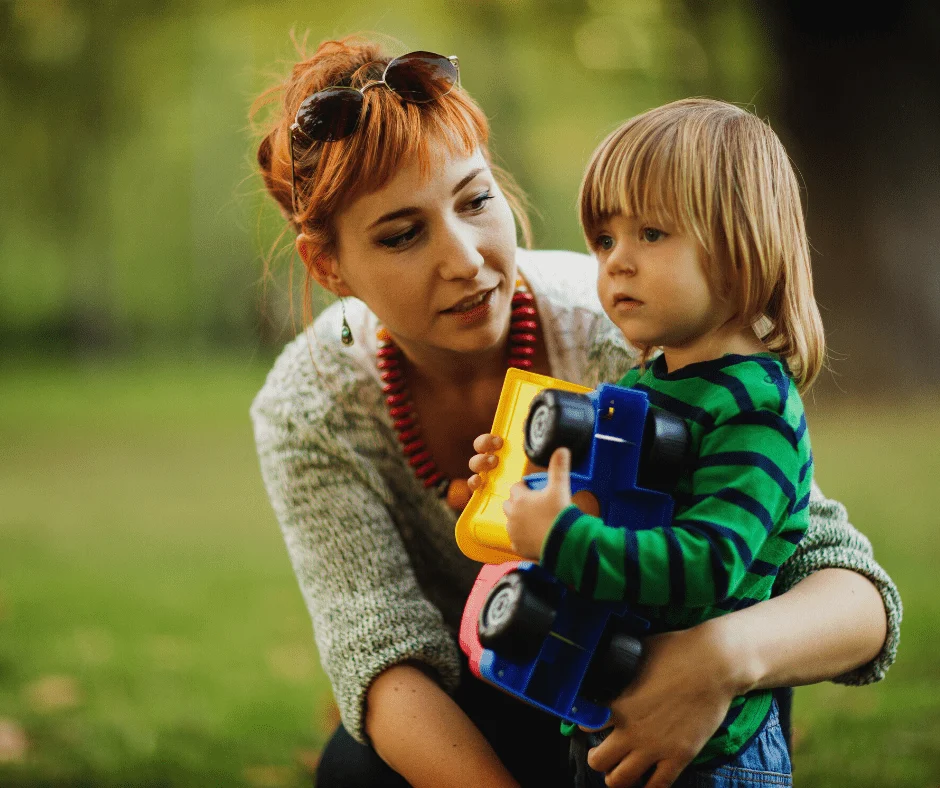
Am I a Helicopter Parent?
I’d be lying if I said I never asked my self this question.
I work hard to provide the best life I can for my children, but do I ever accidently climb into that proverbial helicopter and hover over my child?
Recently, I had to seriously question my parental involvement with my 8-year-old daughter’s school work. I was reminding her to do her homework everyday when she got home – normal for elementary school-aged children.
The issue was that she started to lie to me about her homework so that I wouldn’t have to make her do it. It was a constant battle.
One day, I decided to back off and let her deal with her own decisions. She came home from school upset because her teacher made her skip recess for not completing her homework.
Although that was an uncomfortable experience for her, she quickly learned self-control skills the importance of taking responsibility for her own life. And I learned an equally valuable lesson about natural consequences.
8 Signs You May be a Helicopter Parent
It is normal to hover a little bit. Our job as parents is to keep our children safe while keeping their development and future in our minds.
However, if you find yourself doing these 10 things, you may be contributing to your child’s lack of confidence and potential emotional problems.
Related: Raise Smart Kids with These Motivating Tips
1) You do not Allow Any Risks
I met a friend at a local park so that our children could play. When her child began running, she pulled him aside and told him to slow down because he could get hurt.
Luckily, we were close enough that she wasn’t offended when I butted in and asked her “what’s the worst that can happen, he scrapes his knee?”
New research has found that risky behavior is very healthy for children.
Don’t miss: The Dying Art of Letting Kids be Kids
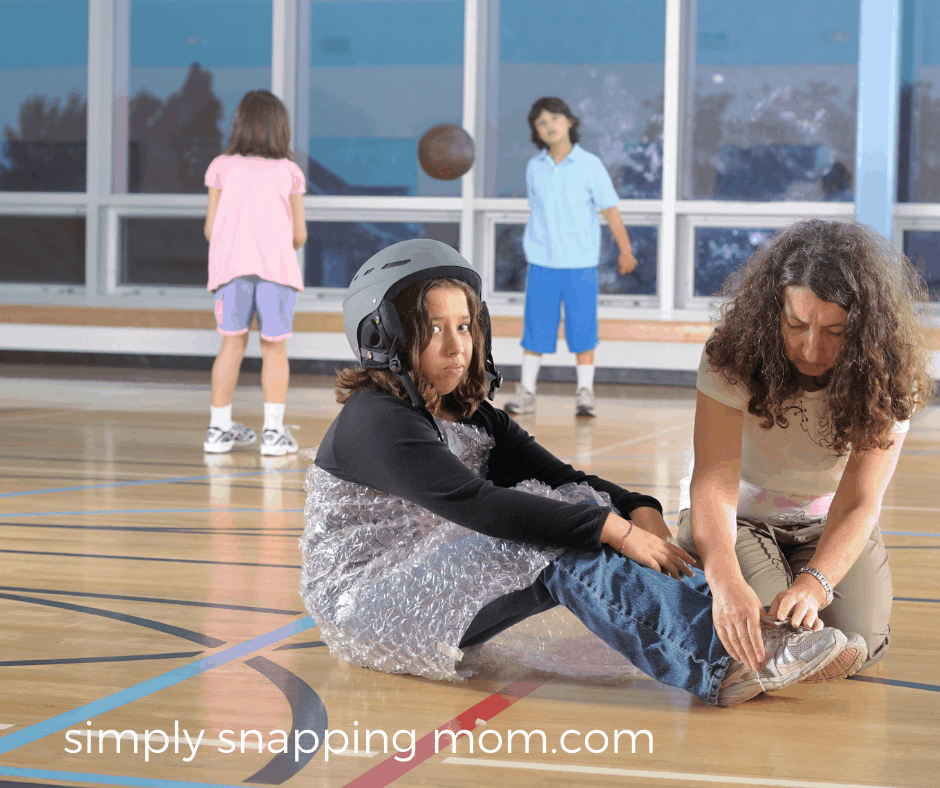
2) You Answer for Your Child
If someone asks your child a question, you may feel compelled to answer for them.
Resist this urge, even if there is a long awkward pause or your child doesn’t seem to understand the question.
Learning to speak their mind and talk to adults is required for healthy development.
3) You Don’t Let Your Child Fail (or make excuses when they do)
It may sound harsh, but I actually love to see my kids lose. It teaches them that they will not always win in life, and the importance of hard work.
When your child loses, if you respond with “the other child must have cheated” or “that was not fair competition”, then you aren’t allowing your child to learn how to cope with disappointments in life.
Your child will develop an overwhelming fear of failure and anxiety over disappointing others.
Instead, let your child be upset. When they are ready, talk to them about how they feel and what they can do to prepare in the future.
4) Your Against Swaying from a Strict Routine
We all know those parents who have military-like routines in their home.
“Sorry, little Timmy can’t play until after his 1:15 to 2:35pm nap followed by 23 minutes of coloring.”
Studies on discipline consistently show that strict parenting and routines result in kids with worse behavior than other kids.
If parents pay close attention, there are plenty of signs that they are setting too many boundaries and restrictions. These are 5 common signs that you are too strict of a parent.
5) You Don’t Trust Anyone Else with Your Kids
If you don’t let your mother-in-law babysit your children because they gave them ice cream before dinner once, you may be a helicopter parent.
You may also like: How to Break Screen Addiction in Kids
6) You Referee Your Kid’s Battles
Kids fight. They argue. And sometimes it gets out of hand.
Jumping in to moderate every little spat and conflict between your children and others will restricts your child’s ability to learn valuable conflict resolution coping skills.
Instead of getting involved, encourage your child to work it out and take a step back.
7) You Ignore Your Kid’s Suggestions
You want you daughter to wear a pretty pink dress for school picture day, but she wants to wear the shirt with the unicorn eating ice cream on it.
A helicopter mom will control this situation by disregarding the child’s idea instead of listening to their reasoning.
Related: Close-knit siblings have parents that do these 5 things
8) You Don’t Let your Kid Get Dirty
Your child wants to play in the ball-pit at the local fast-food restaurant play area.
Yes, the amount of virus particles, crusty boogers, and moldy French fries in there would make Pigpen gag; however, germs and dirt are healthy for kids. Let your kids be kids.
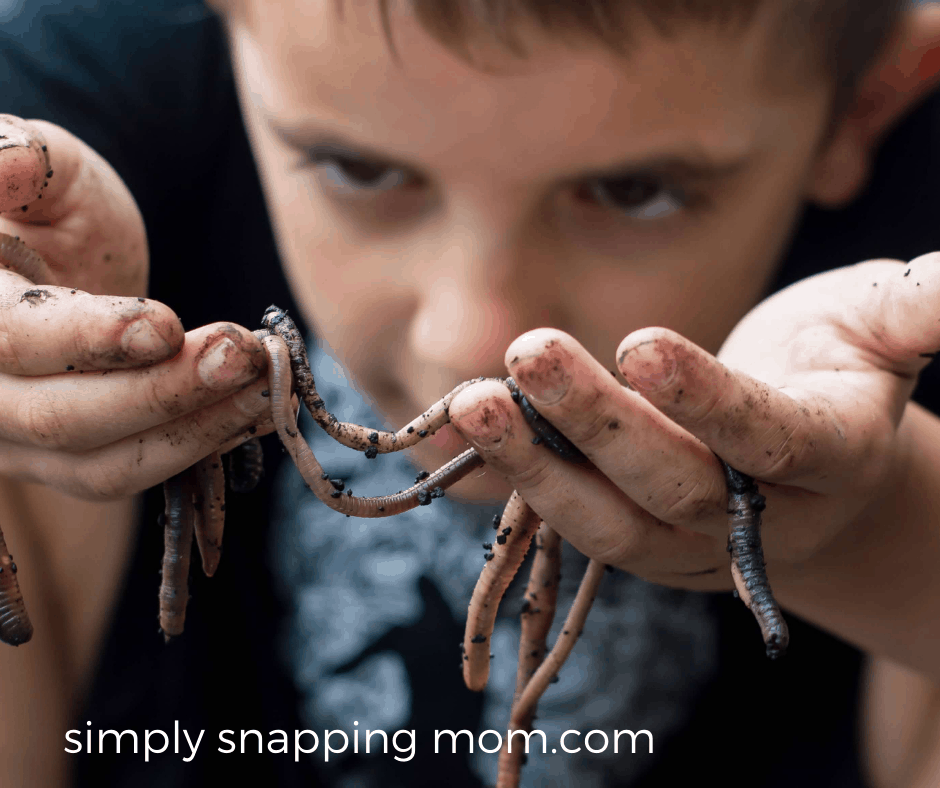
How to Stop being a Helicopter Parent
Is your child lying, extra needy, or too scared to try new things? Then, you may be a helicopter parent.
If you find have diagnosed yourself as a helicopter mom, don’t worry. Admitting it is the first step.
It is clear that you want what’s best for your child and their happiness is your priority.
However, with mounting evidence on the negative impact overly involved parents has on childhood development, it may be time for a change.
Let your child struggle, explore, make mistakes, and figure out how to interact with other people on their own. If this makes you uncomfortable, give them space in small doses.
The best way to teach kids how to cope in life is to give them the freedom to handle their own problems.
You can start by joining the parents who turn their head when their kids fall of their scooters.
If you found this helpful, share it and follow us on Facebook for more honest parenting.

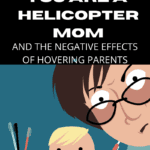
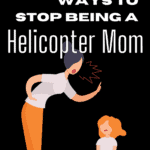
Introducing Kids to Chores, When They are Really Reluctant to do Them - Simply Rooted Family
Tuesday 25th of October 2022
[…] Related: Negative Effects that Helicopter Parenting has on Kids […]
Bare Minimum or Lazy Parenting: Strip out the Unnecessary and Focus on What Matters - Simply Rooted Family
Friday 22nd of April 2022
[…] am no where near a helicopter parent, but I wouldn’t call myself a free range parent […]
How to Respond When Your Kid says the Dreaded Phrase "I am Bored" - Simply Rooted Family
Wednesday 6th of April 2022
[…] Learn What Enmeshed Parenting is and Helicopter Parenting (So you can Avoid […]
5 Ways Your Kid is Telling You That You're Too Strict of a Parent - Simply Rooted Family
Wednesday 6th of April 2022
[…] Learn about these two toxic parenting styles too: Enmeshed parenting and helicopter parenting […]
Raising Emotionally Unstoppable Kids Who Aren't Afraid of a Little Failure - Simply Rooted Family
Sunday 27th of March 2022
[…] Related: The Negative Effects of Helicopter Parenting […]